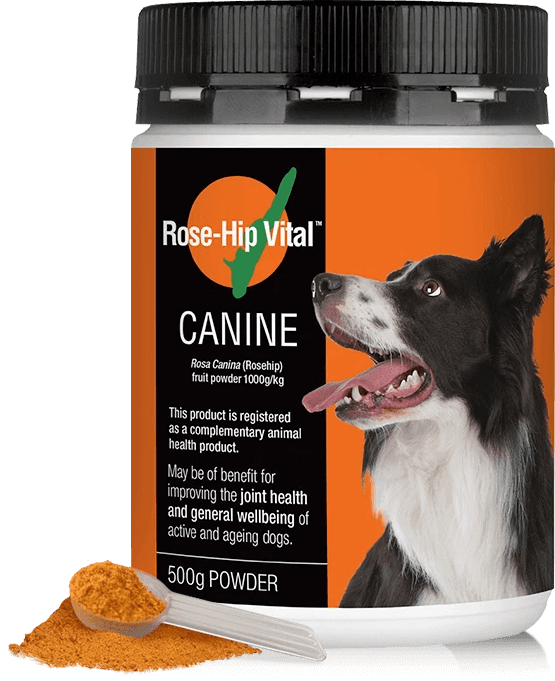Good Facts On Deciding On Dogs Supplements
Wiki Article
Turmeric Is A Potent Anti-Inflammatory That Can Be Used To Improve Joint Health In Both Cats And Dogs.
Curcumin, the active ingredient in turmeric, has been proven to have potential benefits to support joint health for dogs and cat. What can turmeric do to pets' joint issues:
Anti-inflammatory properties
Reduce inflammation:
Curcumin is the main ingredient of turmeric. It has powerful anti-inflammatory properties. It blocks cytokines, enzymes that promote inflammation.
Curcumin's benefits include the reduction of joint inflammation, which helps reduce swelling and pain due to arthritis and related conditions. It also improves the pet's mobility and comfort.
Antioxidant Effects
Oxidative-Stress Reduction
Curcumin is also a potent antioxidant effect. It neutralizes free-radicals that may cause cell damage or inflammation.
Benefits of reducing joint tissue damage through decreasing oxidative strain could slow down joint disease progression and ensure joint health.
Pain Relief
Natural Painkiller:
Curcumin is known to decrease pain by modulating the pain pathways.
Benefits: Natural pain relief can improve the quality of life for pets suffering from joint pain, allowing them to become more active and comfortable.
Cartilage Protection
Inhibition of the breakdown of cartilage:
Curcumin acts by blocking enzymes that cause cartilage to breakdown.
Benefits: By protecting cartilage from degrading It is possible to preserve the health and function of joints in animals that have joint problems.
Immune System Modulation
Immune Response Balanced:
The function: Curcumin helps regulate the immune system, promoting a balanced reaction to inflammation.
Benefits: A balanced immunity response can prevent overly inflammatory conditions and injury to joints, thereby improving overall joint health.
Joint Health Overall Benefits
Increased mobility: Turmeric decreases pain and inflammation while also protecting cartilage. This is a great way to help pets with joint issues enhance their mobility.
Enhanced Quality Of Life: Pets who are less in pain and more mobile tend to be active and engaged. This results in better quality of life.
Utilization and other factors
Dosage and Administration: The right dose of curcumin or turmeric for pets depends on their weight, size, and their specific health requirements. Always follow the directions on the product or advice from your vet. It is common to combine curcumin with black-pepper extract (piperine) which enhances the absorption of curcumin.
Turmeric supplements for dogs are offered in a variety of forms. These include capsules as well as powders and chews. A high-quality pet-specific product is the best way to ensure the safety and effectiveness of your pet.
Effects: Excessive doses of Turmeric can cause stomach upsets in certain pets. It is possible to reduce the side adverse effects by beginning with lower doses and then gradually increasing the dose. It is crucial to be aware of the reactions of your pet.
The article's conclusion is:
Turmeric and its active ingredient, curcumin provides numerous benefits to joint health for pets and canines. Its anti-inflammatory, antioxidant, and pain relieving properties aid in reducing joint pain and inflammation, safeguard cartilage and enhance overall joint function. Regular consumption of turmeric supplements can improve the mobility and quality of life for pets suffering from joint pain. View the top rated collagen for dogs hints for blog info including ear infections in dogs, pet supplements for pets with fear of loss, pet supplements for rehomed pets, pet anxiety relief, pet supplements for pets with medical conditions, pet supplements for pets with fear of sirens and horns, pet supplements for pets with brittle nails, pet supplements for active pets and more.

How Do Omega-3 Fatty Acids For Pets And Cats Aid Kidney Failure?
Omega-3 fatty acids, like EPA (eicosapentaenoic acids) and DHA Docosahexaenoic acids are able to support the health of kidneys in dogs and cats. The following are the ways they can assist in managing kidney failure:
Anti-inflammatory Properties
Reduce Inflammation
Function The Omega-3 fatty acids exhibit strong anti-inflammatory effects, reducing the production of proinflammatory cytokines and eicosanoids.
Benefits: Omega-3s can reduce inflammation in kidneys and can improve kidney function.
Blood Pressure Regulation
Lowering Blood Pressure:
Function: By improving the condition of vascular health and reducing inflammation throughout the system omega-3 fatty acids assist in reducing blood pressure.
Benefits: Lowering the blood pressure can help protect kidney function and slow down the risk of progression of kidney disease.
Proteinuria Reduction
Reducing Proteinuria:
Function: Omega-3s help to reduce the leakage into the urine of proteins, which is called proteinuria. This is a very common problem with kidney disease.
Benefits of reducing proteinuria: This protects kidney function and minimize any further damage to the kidneys.
Glomerular Filtration (GFR) is a measure of the rate that a glomerular filterate is produced, can be kept.
Supporting Kidney Filtration
Function: The omega-3 acid is essential to maintaining the integrity of the kidneys' glomerular filtering process.
Benefits: Keeping a stable GFR is vital to preserving kidney function as well as slowing down the progress of chronic kidney disease.
Appetite Stimulation And Nutritional Support
How to increase appetite
Function: Omega-3s can help enhance appetite and nutritional intake in pets with kidney disease, who typically suffer from decreased appetite.
Benefits : A healthier diet can benefit general health. It also helps maintain muscle mass and weight in animals with kidney disease.
Cardiovascular Health
Helping Heart Health
Function: Omega-3 fatty acid support cardiovascular health, by reducing blood pressure, inflammation and improving the lipid profile.
Benefits: Better cardiovascular health can reduce the chance of complications that are associated with kidney failure, including heart disease, and enhance overall health and well-being.
Antioxidant Effects
Reducing Oxidative Stress:
Function: These fatty acids are antioxidants that reduce the damage caused by oxidative events to kidneys.
Benefits: By reducing the oxidative damage to kidney cells, you can improve kidney function and slow disease progression.
Use and considerations
Dosage, administration, and dosage: The dose of omega-3 acids to give will depend on your pet's age, weight, health, and size. It is important to follow veterinarian's recommendations or the product instructions on the label. Omega-3s come from supplements of fish oil, which are specially designed for pet owners.
Omega-3 supplements are available for pets in various varieties. They include liquid oils, chews and capsules. To ensure safety and effectiveness it is essential to choose an item of the highest quality.
The side effects of Omega-3 supplements are usually safe but some pets may experience gastrointestinal upset. You can reduce side negative effects by starting with a lower dosage and increase it gradually over time. Be sure to keep an eye out for any possible side effects, like diarrhea or vomiting.
Conclusion
Omega-3 fatty acids are beneficial for treating kidney disease in dogs and cats. Their anti-inflammatory, blood pressure-lowering, proteinuria-reducing, and appetite-stimulating properties help support kidney function and overall health. Omega-3s can be a fantastic way to improve the quality of your pet's well-being and longevity. Read the most popular natural dog probiotics blog for website tips including pet immune system supplements, pet weight loss supplements, pet hesperidin supplements, herbal supplements for cats, pet supplements for pets with fear of tv and radio, pet supplements for pets with skin infections, pet nettle supplements, pet supplements for pets with respiratory disease and more.

What Can Probiotics Aid In Preventing Yeast Infections In Dogs And Cats?
Probiotics can help treat yeast infections in cats, dogs and other pets by maintaining a healthy balance in the gut microbiome and on their skin. Probiotics can aid in treating yeast infections.
Restoring the Microbial Balance
Balancing Gut Flora:
Function: Probiotics aid in keep a healthy balance within the digestive tract.
Benefits: A balanced gut microbiome supports overall immune function and helps to prevent the growth of yeast (such as Candida) which can cause infections. This can help in managing yeast-related infections throughout the body.
Competition with pathogens
Contests with harmful Organisms
Function Probiotics compete against pathogenic (disease-causing) microorganisms, including yeast, for food sources as well as space within the gastrointestinal tract as well as on the skin.
Benefits. Through out-doing or out-competing other pathogens like yeast, probiotics decrease their potential to cause diseases and can maintain a healthier microbiome.
Modulation of Immune Response
Enhancing Immune Function
Function: Probiotics assist in control the immune system by increasing the production of substances that affect it.
Benefits: A strengthened immune system will aid the body fight yeast infections, and reduce their frequency.
Production of antimicrobial substances
Production of Antimicrobial Factors:
Function: Certain strains of probiotics have substances (such the bacteriocins), which are antimicrobial against yeasts and other pathogens.
Benefits : These antimicrobial substances can be used to block the growth or development of yeast. This assists in the treatment and control of yeast-related illnesses.
Reduction of Inflammation
Anti-inflammatory Effects:
Function: Research has shown that probiotics lower inflammation caused by yeast infections.
Benefits by reducing inflammation due to yeast infections, probiotics help to ease symptoms including redness and itching.
Help for Skin Health
Maintaining Skin Barrier Function:
Function: Probiotics aid in maintaining the integrity of the skin barrier.
Benefits: Healthy skin barriers are less vulnerable to yeast infections since it prevents yeast and other pathogens from gaining access to the skin and causing infections.
Use and considerations
Probiotics are of different types: Select probiotic supplements that contain strains known to benefit the skin and fight yeast infections, including Lactobacillus as well as Bifidobacterium species.
You can take probiotics in various types. They include capsules (including powders) and chews (such as gum) as well as chews. Probiotics applied to the skin can be beneficial for localized skin conditions.
Time: A probiotic treatment could be necessary to ensure the balance of microorganisms in your body and stop the recurrence of yeast infections.
Consultation with a Veterinarian - Always consult with your vet prior to taking probiotic supplements with your pet. They can advise you on the most appropriate probiotic strains for your pet, along with dosage and duration suggestions based on the particular health issues.
The Final
Probiotics can be an effective adjunct therapy for managing yeast infections in cats and dogs. Probiotics promote a healthy microbial equilibrium, enhance immune function, help reduce inflammation and improve the health of your skin. This helps to reduce the frequency and severity of yeast infections. When probiotics form part of a comprehensive therapy plan they can greatly improve the overall comfort level and well-being for pets with yeast infection. Check out the most popular helpful hints for herbs good for dogs for blog examples including pet sleep supplements, pet lavender supplements, pet supplements for foster pets, pet burdock supplements, pet digestive enzymes, pet omega-3 supplements, cushings disease alternative treatment, pet quercetin supplements and more.
